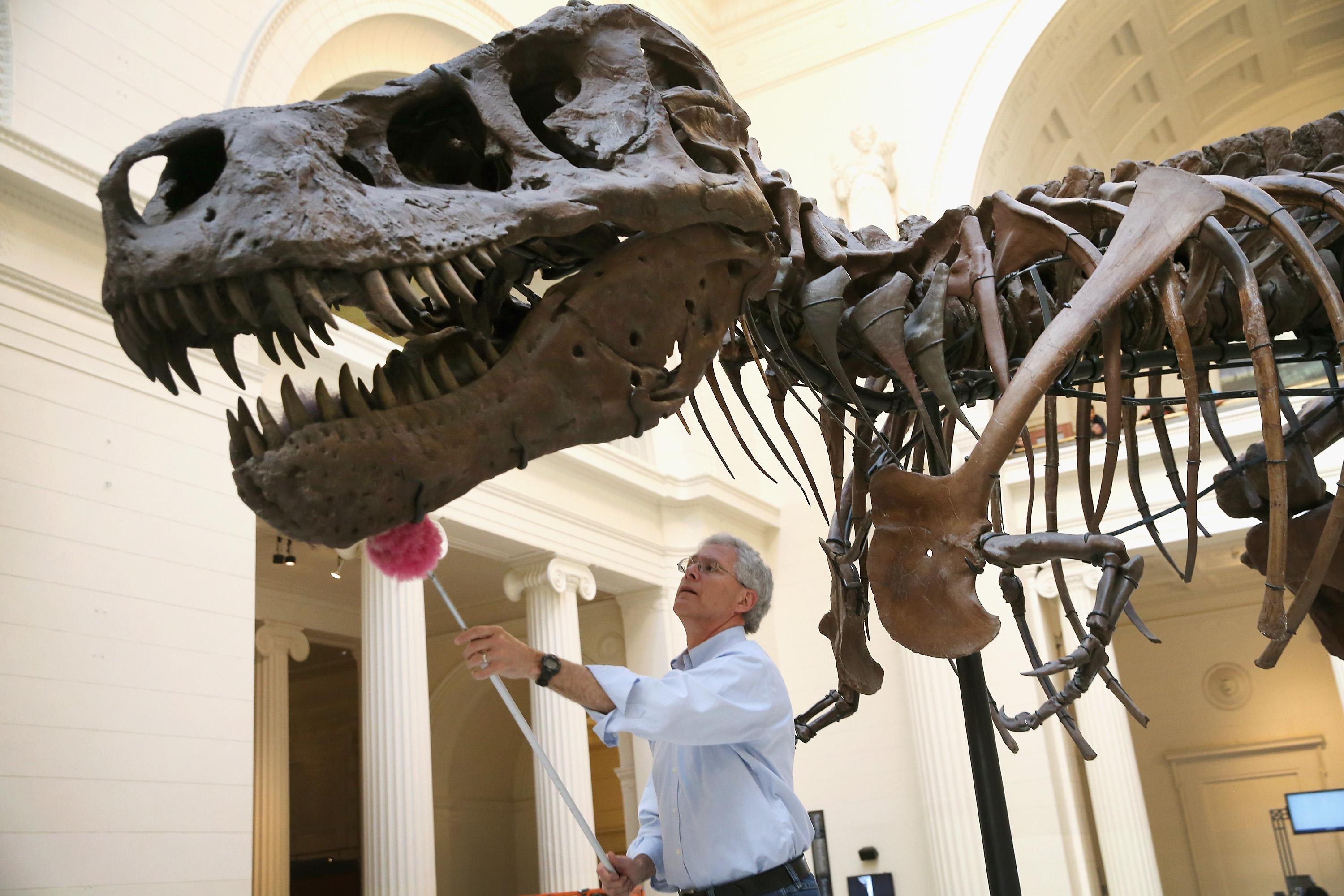If the thought of the Tyrannosaurus rex, or T. rex, roaming the earth haunted your Jurassic Park dreams, you now have one more to worry about. A new dinosaur, the Qianzhousaurus sinensis—less ferociously nicknamed “Pinocchio rex”—was discovered in China. A cousin of the T. rex, “Pinocchio rex” had a longer nose complete with tiny horns. “Earlier discoveries had hinted at tyrannosaurs with elongated snouts,” Nature reports. “The new finding confirms that not only did they exist, but that they make up an entirely new class of dinosaurs.”
Here’s more on the new dinosaur from National Geographic:
At about 29 feet (9 meters) long and 1,800 pounds (800 kilograms), the dinosaur was smaller and likely sprightlier than the 42-foot-long (13 meters) T. rex. The two creatures lived side by side about 66 million years ago during the late Cretaceous period, just before the demise of the dinosaurs, according to a study published May 7 in the journal Nature Communications. Scientists happened upon the nearly complete, “one in a million” Qianzhousaurus skeleton at a construction site in Ganzhou (map), a rapidly developing southern city that’s also rich with fossils. (The tyrannosaur’s first name is inspired by Qianzhou, the ancient name for Ganzhou.)
Qianzhousaurus probably couldn’t bite as strongly as T. rex because it had a weaker jaw, the scientists said. So they suspect the newfound tyrannosaur went after smaller and less challenging prey than T. rex hunted. The fossil record at Ganzhou reveals there would have been plenty of food: The environment was lush with trees and water that hosted a panoply of life-forms including lizards; small, feathered dinosaurs called oviraptors; and long-necked plant-eaters. (Watch video: “Dinosaurs 101.”)
Correction, May 8, 2014: This post originally quoted Nat Geo as saying that oviraptors ate eggs. Oviraptors did not eat eggs and Nat Geo has corrected their story. The quote has been updated.
